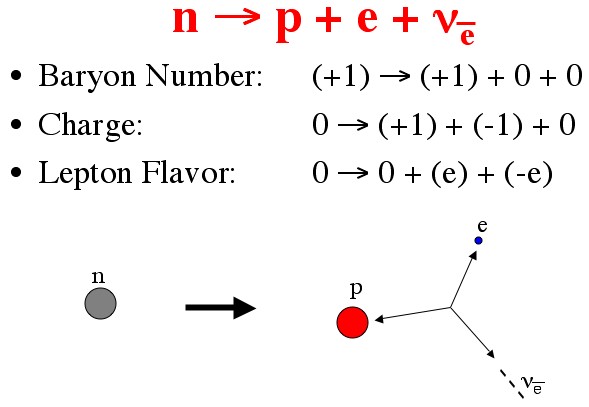The complete question was: Is it true that all matter is simply condensed energy? Does that mean that the Big Bang was pure energy and coalesced into matter?
Physicist: Pretty much. If you can get enough energy into one place (generally light or kinetic energy), then you’ll get a (mostly random) variety of particles popping out. The conversion between mass and energy is so ubiquitous in physics, that most physicists only know the mass of particles in the context of their equivalent energy. If you ask a physicist “what is the mass of an electron?” they’ll say “0.5 MeV” (which is a unit of energy). Frankly, it’s more important to know than the actual mass. I mean, how hard is it to pick up an electron? If you answered “I don’t care” or “zero”, you’re right.
The only thing that keeps particles from turning back into energy (again, usually light and kinetic) are “conserved quantities”. If you’ve taken an intro physics course you should be familiar with conservation of energy and momentum. In particle physics you also need things like: charge, Lepton flavor (which covers things like electrons and neutrinos), and Baryon number (which covers things like protons and neutrons).
The classic example is neutron decay:
A neutron is heavier than a proton, so you’d think it would decay into a proton and some extra energy (conserving energy and baryon number). But that would violate conservation of charge (protons have 1, neutrons have zero). So maybe it could decay into a proton and electron? Now you’ve balanced charge, but violated lepton flavor (electrons have “electron flavor 1”). To balance everything you need to add an anti-electron neutrino (electron flavor -1) to the mix.
The very early universe was a “particle soup”. The mean energy of the photons flying about was more than enough to generate new particles. These would pop into existence in balanced quantities and then cancel out again. The big difference between now and then (why we don’t see particles being spawned off all the time) is that the average energy of photons today is closer to 660 meV (about 1 billionth of the energy needed to create electrons, the smallest particle).








Pingback: Q: What are Feynman diagrams, how are they used (theoretically&practically), and are there alternative/competing diagrams to Feynman’s? « Ask a Mathematician / Ask a Physicist